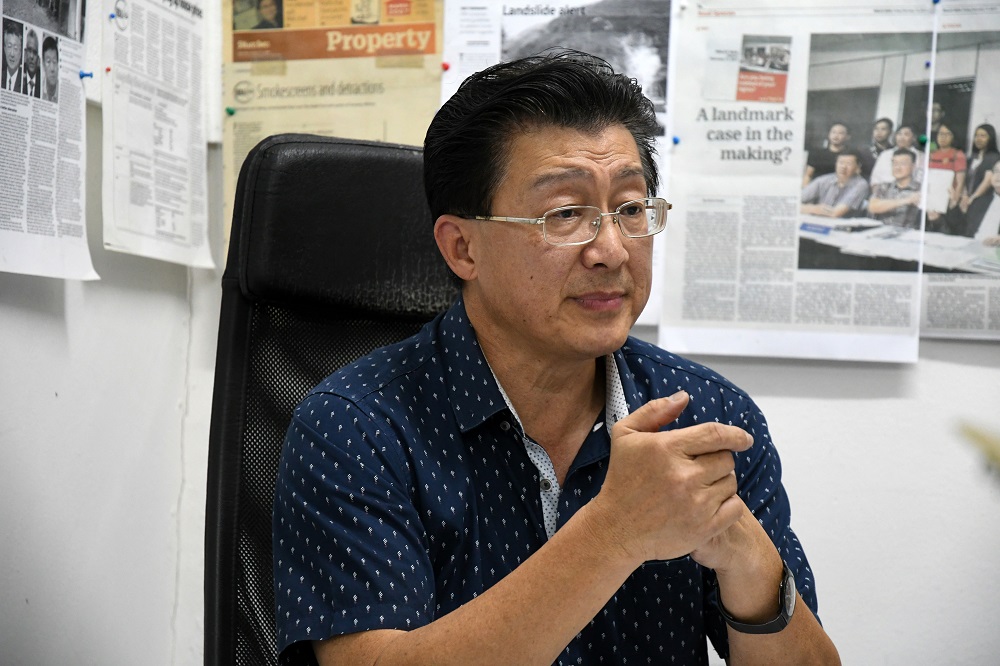Covid-19 Bill — (legal) vaccine for contracts?

Inordinate delays in the Covid-19 “legal shield” has rendered it redundant and meaningless, but it is better to have an imperfect bill now as a starting point where future improvements can be made.
On Aug 12, 2020, the Temporary Measures for Reducing the Impact of Coronavirus Disease, 2019 (Covid-19) Bill, 2020 (the Bill) was tabled in Parliament for its first reading. Subsequently, the Bill was passed on Aug 25 at its third reading. The purpose of the Bill includes to modify relevant provisions.
In our previous article, we have mooted the idea of a “legal shield”, “time freeze” and temporary suspension of all contractual covenants to provide temporary relief, offer extension of time for rectification and to minimise legal entanglement. The question is, is the Bill capable of meeting these aspirations?
We have time and again warned the Government that delays in passing the proposed law would be fatal to parties affected by the movement control order (MCO) and continuous effects of Covid-19. We were hopeful that the Bill would be tabled in the May 18 Parliament sitting, but unfortunately it did not happen. Given the pace of legislation, we anticipate the law will be published and implemented sometime in early October, 2020 after the House of Senate convenes from Sept 2 to 23, subsequently with the royal assents to the law being endorsed. This is a rather optimistic projection which does not take into account further political interruptions.
A limited time window
Since the MCO began on March 18 until now, the effects of Covid-19 have been palpable with high unemployment, sluggish economy (both domestic and global) and a projected rise in non-performing loans when the loan moratorium ends on Sept 30. Affected parties would have moved on once leases had expired, rendering any late Covid-19 Bill redundant.
Much like how we must not be tardy with seeking treatment if we suspect we have contracted the virus, time is critical when it comes to this Bill. It is impossible to undo the carnage of Covid-19 by implementing the Bill any later than now! A late Covid-19 Bill cannot salvage events which have already been set in motion. We cannot legislate back to life a business that has already shuttered due to the owner’s failure to pay rent during the MCO.
Let bygones be bygones?
The popular cliche “better late than never” will not apply in the Covid-19 Bill. In fact, many people who were hoping to rely on a Covid-19 law to obtain temporary reprieve will be disappointed to know that there is a “savings clause” aka “disclaimer clause” that reads inter-alia:
Notwithstanding Section 7 (Inability to perform contractual obligation), any contract terminated, any deposit or performance bond forfeited, any damages received, any legal proceedings, arbitration or mediation commenced, any judgement or award granted and any execution carried out for the period 18th March, 2020 until the date of publication of this Act shall be deemed to have been validly terminated, forfeited, received, commenced, granted or carried.

It seems like a case of “let bygones be bygones” and we have to “bite the bullet” and move on. Evidently, it does not matter anymore when the party having the upper hand has inflicted painful damages to the weaker contracting party. It would all be “water under the bridge” when those aggrieved parties, having suffered irretrievable predicaments, initiate legal proceedings at our courts of law. Our courts have been inundated with voluminous cases which could have been prevented by the quick action of our lawmakers. Alas, it is not to be. The efforts by all the trade organisations, NGOs and vested parties would be deemed irrelevant and in vain.
With all due respect, it is regrettable that the makers of the Bill appear to have forgotten the real objective and aspiration of this social legislation, which is to suspend, for a specified period; to afford a legal shield on contracts and give a chance and lifeline to individuals and businesses in the post-Covid-19 environment.
Special mediation centre — why reinvent the wheel?
The Government says it will set up a special mediation centre to help resolve disputes arising from non-performance of contractual obligations. On this issue, we feel that instead of a mediation process (which includes the Minister’s appointment of a mediator, role of a mediator, conduct of mediation and conclusion of mediation by way of a settlement agreement), it should be the Malaysian courts (of law) which should resolve disputes involving Covid-19 cases and to grant relief, decide whether such cases fall within the ambit of a Covid-19 event, or whether performance was materially impacted by Covid-19.
There should be a formation of a specialised designated High Court for a prescribed period to preside over all Covid-19 related cases. After all, our Federal Constitution prohibits exclusion of jurisdiction of the courts. Furthermore, the appointment of a mediator in the Malaysian context is far too arbitrary and any appointment may be politically tainted or industry-influenced, resulting in justice being denied to the aggrieved party.
Will the cost be a deterrence to resolving disputes via mediation? The mediators’ fees may not be regulated, therefore subject to gross inflation. The courts are more expeditious and cost-effective than mediation and the courts are also a neutral arbiter of disputes. Why is there a necessity to reinvent the wheel when the legal process is available via the courts of law? Even in courts, there is a process of mediation where parties appear before the registrar (sometimes presided by judges) in their chambers attempting possible out-of-court settlements.
We have proposed that the Covid-19 procedure at the High Courts should be simplified. A prescribed form and checklist of documents are to be furnished to the presiding judge to help evaluation, assessment and decision on the cases. Lawyers representing their clients should limit their fees to “not in excess of RM5,000”, as otherwise it would defeat its purpose.
This is a temporary and speedy relief to facilitate regularisation of performance and is not meant to cause further hardship to a weaker party or parties already suffering from possible financial and emotional distress.
Modification to the Housing Development (Control & Licensing) Act, 1966
Section 34 and 36 seek to deal with issues related to “Late Payment Interest” and “Defects Liability Period”, respectively, requiring the purchasers to “apply to the Minister for an extension of period” beyond the impacted period of March 18 to Aug 31, 2020.
This avenue to obtain an extension sounds good on paper. However, the mechanism for application — factors to consider for allowing extensions and timeline for the entire process — is not stated and accords far too much power to the Minister. The reading of the Bill is simple enough; the aggrieved purchaser may appeal to the Minister and render reasons he/she deserves an extension. If all the affected purchasers (if they are capable of even offering a valid explanation), were to write to the Minister, the Ministry will be overwhelmed with voluminous letters, having to structure the files, deliberating on each and every appeal through their internal committees and responding effectively. This will surely take time. Why take on more work? The extension should be automatically extended to Dec 31, 2020 (the protection period) without the need for application. After all, by the time this Covid-19 law is published and implemented; it would nearly be the end of the year and irrelevant to both purchasers and developers.
Strata Management Act, 2013 (SMA) modifications?
We are still trying to figure out why there is no modification to the SMA under the Covid-19 Bill to address the issues related to delays in conducting annual or extraordinary general meetings; for election of members of management committees; delays in the filing of statutory forms, audited accounts and resolutions; the penalties in late filings, etc. Perhaps the Minister has been advised by the Attorney General’s Chambers to invoke her wide powers in Section 150 (Regulations) and Section 151 (Power to Exempt) to address the issues vis-a-vis “Special Circumstances” inclusive of Covid-19 pandemics. If that is so, we appeal to the Minister to act expeditiously.
Datuk Chang Kim Loong is the Hon. Secretary-General of the National House Buyers Association (HBA).
HBA can be contacted at: Email: [email protected]
Website: www.hba.org.my
Tel: +6012 334 5676
This story first appeared in the EdgeProp.my e-Pub on Sept 11, 2020. You can access back issues here.
EdgeProp Malaysia Virtual Property Expo 2020 (VPEX 2020) is happening now! Find out more exclusive projects and exciting deals here
Stay safe. Keep updated on the latest news at www.EdgeProp.my
Never miss out
Sign up to get breaking news, unique insights, event invites and more from EdgeProp.
Latest publications
Malaysia's Most
Loved Property App
The only property app you need. More than 200,000 sale/rent listings and daily property news.
